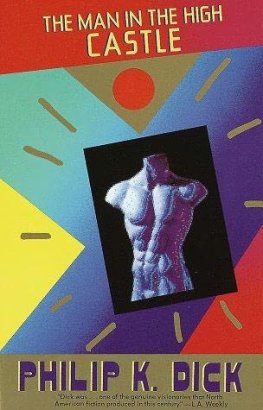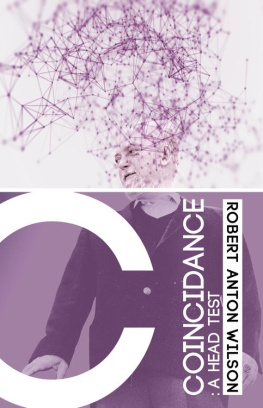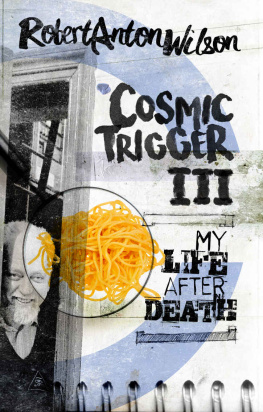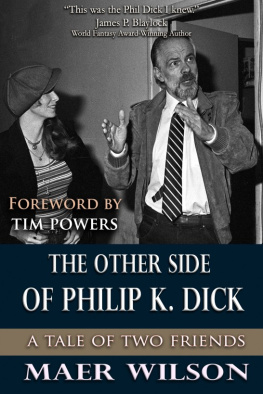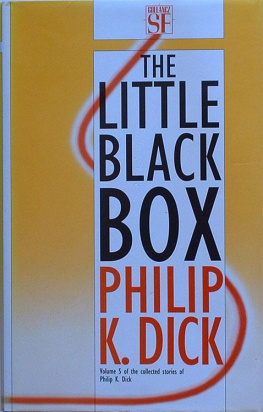PRAISE FOR HIGH WEIRDNESS
It's miraculous how High Weirdness gives us so bracingly sober an account of the far reaches of psychedelic delirium. Rejecting easy credulity on the one hand, and snarky dismissal on the other, Erik Davis explores ecstatic experience without turning it into mystical dogma, but also without ever explaining it away. High Weirdness is neither a wonder tale nor a philosophical treatise; yet it is a masterpiece of what I can only call speculative fiction, or indeed speculative realism.
STEVEN SHAVIRO, author of Discognition and The Universe Of Things
Things got so weird in the seventies that even the weirdest got to turn pro. Even if I was tripping I couldn't imagine a better guide to McKenna, Wilson and Dick than Erik Davis. He has always taken the religious dimension of modern esoteric thought seriously, yet also lightly. Here he proves yet again to be a reliable guide to the outer limits.
McKENZIE WARK, author of Molecular Red andThe Beach Beneath the Street
What happens when a trained historian of religions seriously engages the magical mushrooms, flying saucers, science fiction, and invisible trickster entities of the 1970s counterculture with the open mind and heart of a gifted literary artist? What happens when a rigorous intellect encounters a monstrous bestiary of actual spectral presences? Erik Davis happens. This book happens. And I could not be happier about it. May this book, like a glowing UFO, land on your lap, and every other lap, and weird our world beyond all measure.
JEFFREY J. KRIPAL, author of Secret Body: Erotic and Esoteric Currents in the History of Religions
Erik Davis deep expertise in the esoteric underpinnings of popular culture makes him the perfect psychonaut to navigate the major perturbations in our reality field wrought by those giants of the counterculture, Terence McKenna, Robert Anton Wilson, and Philip K. Dick Thanks to Davis unique ability to straddle high scholarship and hipness with his learned, sympathetic perspective and lively yet rigorous writing style, the publication of High Weirdness marks an important milestone in esoteric studies and the conjunction of two previously separate worlds.
VICTORIA NELSON, author of The Secret Life of Puppets and Gothicka
High Weirdness is the first book in a very long time that's given me the feeling of discovering a secret trutha set of corridors through the maze of consciousness, existence, anomaly, and synchronicity. It's the sense of complete novelty yet utter familiarity, like suddenly remembering a dream that you've been having every night and then forgetting. Davis is describing, perhaps even retrieving, the strange attractor driving the visionary seventies. It's a sensibility all but lost to the utilitarian, conformist predictability of the digital age. Yet it's also precisely the terrifying and awesome novelty we need to recover if we're going to preserve the uniquely human ability to embrace paradox, celebrate ambiguity, and laugh at death. Don't be afraid. It's just the weird.
DOUGLAS RUSHKOFF, author of Team Human and Present Shock
High Weirdness
Drugs, Esoterica, and Visionary Experience in the Seventies
First paperback edition
published by Strange Attractor Press & the MIT Press 2019
ISBN: 9781907222870
Text copyright Erik Davis
Cover and frontispiece image by Arik Roper
Book Design by Richard Wilkins
All rights reserved. No part of this publication may be reproduced in any form or by any means without the written permission of the publishers.
Library of Congress Cataloging-in-Publication Data is available.

Strange Attractor Press
BM SAP, London, WC1N 3XX, UK
www.strangeattractor.co.uk
Printed and bound in Estonia.

The MIT Press, Cambridge, Massachusetts.
And London, England.
High Weirdness
Drugs, Esoterica, and Visionary Experience in the Seventies

for the others
Table of Contents
Guide
Acknowledgements
This book has been a long time coming. Some of the inspirations, and a few notions, have been kicking around since the mid-eighties, when I wrote my senior English thesis at Yale on The Postmodern Gnosis of Philip K. Dick. Given such a length of time, a complete reckoning of the individuals who have helped this project toward the light of manifestation would not only be lengthy, but riddled with gaps imposed by fallible memory and the nebulous and yet pervasive way that our individual efforts are supported and realized through our relationships with others. At the least, however, I must thank two of my Yale professors, David Rodowick and Richard Halpern, who not only watched over my initial foray into PKD criticism but helped me find a path through critical theory that kept my freaky obsessions intact. I also must pass a groovy high five to Charles Kronengold and Anne-Lise Francois, who first got me thinking about the seventies in a serious way.
I would like to thank my thesis committee at Rice University, who oversaw the dissertation version of this book. Jeffrey Kripal, who co-founded the GEM program (Gnosticism, Esotericism, Mysticism) in the department of Religion there, encouraged me to find my own weird path through graduate school even as he laid out an exceptionally useful map of the comparative history of religions. Cary Wolfe proved unremittingly encouraging of my work as both a theorist and a writer, and his work on systems theory and posthumanism provided a deeply influential, if mostly implicit, inspiration for this project. William Parsons proved a superb model for how to bring questions of mysticism into the study of religion in a criticalbut not exclusively deconstructivefashion. He also reliably beamed sunny Berkeley vibes in the direction of this Bay Area native, uncomfortably transplanted into the hot swamps of Houston.
Within the wider community of Rice, I was helped and encouraged by a number of faculty members as well as fellow graduate students. Drs. Claire Fanger, April DeConick, John Stroup, and Philip Wood all helped this project along in important ways, in part by convening excellent seminars and workshops. Among my many friends and conversation partners in the Religion, English, and Philosophy departments, pride of place go to Dustin Atlas, Derek Woods, Benjamin Kozicki, Mike Griffiths, and Jacob Mills, all of whom challenged and inspired my thoughts and sharpened my critical acumen. I would particularly like to thank Matthew Dillon, who generously shared thoughts and references relevant to our mutual fields of interest, and whose exacting scholarship and discipline proved inspirational.
Scholarly colleagues beyond Texas also provided many words of insight and encouragement over the years, especially Christian Greer, Marcus Boon, Alexander van der Haven, James Burton, Joshua Ramey, Michael Saler, John Modern, Christopher Partridge, Heather Lukes, Molly McGarry, Brian Kelch, Joe Milutis, Robert Wallis, and Mikita Brottman. Other waves of assistance came from beyond the walls of academe. The sometimes fading fires for the project were whipped up through (occasionally desperate) conversations with Mark Pilkington, J.P. Harpignies, Jeremy Glick, Miguel Conner, Victoria Nelson, Mark McCloud, Fernando Castrillon, Nathaniel Ward, and Jeff Linson. Many others provided precisely the fragmented reference or concept I needed at the time, or gave me the opportunity to work out my ideas in conversation. These include Jacques Vallee, Eddy Nix, David Pescovitz, Matt Cardin, Adam Gorightly, Mike Jay, Mark McCloud, Earth and Fire Erowid, Matthew Souzis, Juris Ahn, and Uel Aramchek.


